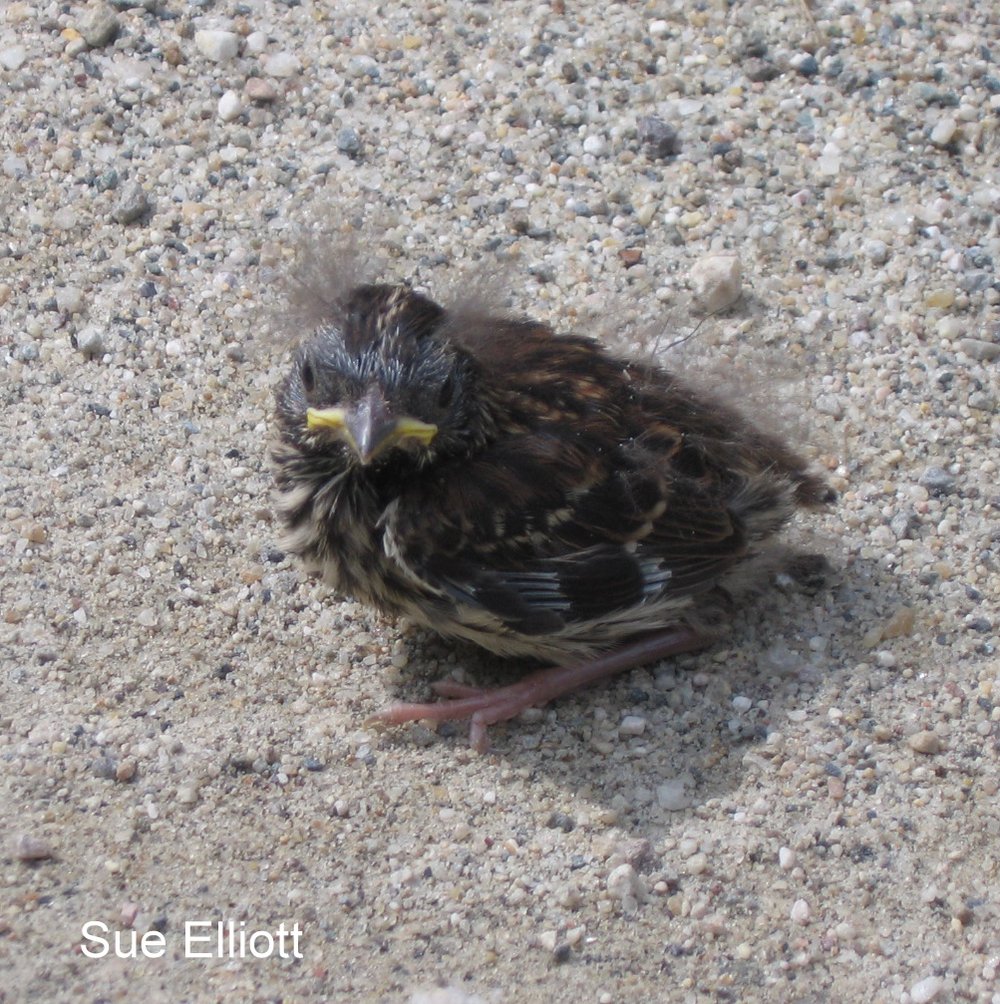Wildlife Rehabilitators in Vermont
Click here for a link to Vermont Fish and Wildlife for a list of wildlife rehabilitators (birds, mammals, reptiles and amphibians).
For birds call the Vermont Institute of Natural Science at 802-359-5000, ext 510 for all birds including raptors, waterfowl, songbirds and gamebirds.
If you find a baby bird
A very young, unfeathered bird can be placed right back into its nest. Parent birds will not reject young that have been handled by humans, although you might want to wear gloves to keep your scent from getting on the bird and attracting predators.
If you can’t find the nest, or if it’s too high to reach, a make shift one can be made by securing a berry basket or a small margarine container with holes in the bottom to a tree in the vicinity of where the bird was found. Fill the makeshift nest with dried grass or pine needles and place the baby bird in it. At this point it is important to remove yourself from near the nest and observe it from a distance. If the parent birds are around, there’s a good chance they will come to feed the nestling when they hear it begging.  White-throated Sparrow fledgling
White-throated Sparrow fledgling
However, time is critical for these birds. If, after about half an hour, no parent birds appear, then the bird probably will need some help. Small, unfeathered birds need to be kept very warm. Get help from a rehabilitator as soon as possible. Older nestlings with feathers can go for longer periods without warmth and food. Watch these birds for an hour before getting help if no parents are around.
Don’t assume because they’re alone that birds are abandoned. Again it’s necessary to watch for some time from afar to see if mom or dad is around, and try to keep cats and dogs indoors, or at least supervised.
 Baltimore OrioleParent birds are the best mothers and fathers for baby birds. Never remove a young bird from its natural habitat without being absolutely certain that it’s really orphaned. Call a rehabilitator if you are unsure of what to do. Don’t attempt to raise any young bird on your own. Their diets are very complex and specific, and the environment must be controlled so they don’t become overly tame.
Baltimore OrioleParent birds are the best mothers and fathers for baby birds. Never remove a young bird from its natural habitat without being absolutely certain that it’s really orphaned. Call a rehabilitator if you are unsure of what to do. Don’t attempt to raise any young bird on your own. Their diets are very complex and specific, and the environment must be controlled so they don’t become overly tame.
Also, it is not legal to have wild birds in one’s possession without proper permits. State and federal laws protect birds in Vermont.